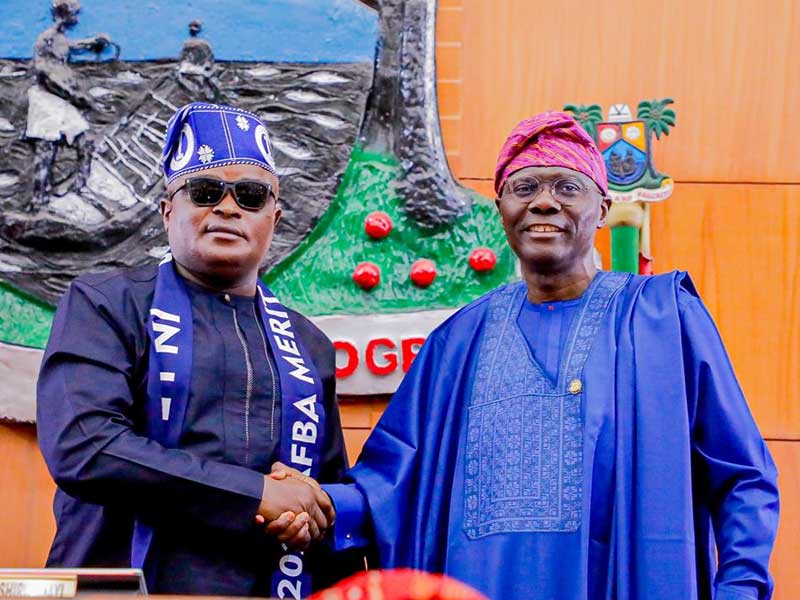On Monday, Mudashiru Obasa was removed from his position as the speaker of the Lagos State House of Assembly due to numerous allegations of fraud, with close observers of Lagos politics suggesting that his ousting stemmed from always being at loggerheads with the executive arm, virtually running a parallel government with Governor Babajide Sanwo-Olu.
His impeachment occurred just days after he was accused of facilitating the withdrawal of N43.5 billion intended for backup vehicles for lawmakers, among various statutory and financial violations.
It didn’t matter to the lawmakers that he wasn’t physically present to defend himself as they raised the process of putting their speaker to the sword to a matter of urgent public importance, and within minutes of the majority of his colleagues bellowing “Yes,” the long-standing leader of the state’s Assembly was removed from office, and his deputy was immediately sworn in to be the first female leader of the House.
The Ex-Speaker’s Sins
Besides his running battle with the executive, Obasa faced several accusations regarding financial misconduct, including the alleged misappropriation of N15.6 billion for office construction, despite claims that the current facilities were already operational.
He was also accused of awarding contracts to himself using various front companies. He was invited by the Economic and Financial Crimes Commission (EFCC) in 2020 for being in control of over 70 bank accounts.
Reading out the impeachment and the basis for their action, Hon. Obafemi Saheed, who represents Kosofe Constituency 2, said their action was because of Obasa’s “gross mismanagement and lack of leadership; his highhandedness and lack of regard for the honourable members at all times; intimidation and suppression of members, including inciting members against one another; misappropriation of funds and lack of transparency in his management of the House of Assembly funds; gross abuse of office as speaker of the House of Assembly and authoritarianism, as well as erosion of trust among the members on the speaker.”
Unprecedented Non-Confirmation of a Governor’s Cabinet Nominees
Following Sanwo-Olu’s inauguration for a second term, the Lagos House of Assembly blocked the confirmation of several of the governor’s cabinet nominees in what was an unprecedented move, with the House justifying their action as the unheralded stature of the nominees within their constituencies and lack of political capital.

In reality, the cause of the non-confirmation of nominees was rooted in the power play between Obasa and the governor after some of the Speaker’s loyalists claimed that Sanwo-Olu had backed a different candidate during the election for the Speaker’s position.
Having served two terms as Speaker, several lawmakers wanted a change in leadership, but it eventually took the intervention of the Governor’s Advisory Council (GAC) to reach a compromise and support Obasa’s candidacy.
The Beginning of the End
While he was officially impeached on infractions bordering on corruption, political analysts suggest that the Agege politician pressed his self-destruct button when he began to establish structures throughout the state’s local government areas and 37 local council development areas (LCDAs). These structures, referred to as Obasa’s Support Group, were to lay the foundation for his rumoured 2027 gubernatorial bid to succeed Sanwo-Olu.
Reports suggest that the former Speaker even directed lawmakers to buy festive gifts for these groups, an action interpreted as a blatant defiance of party guidelines.
Sources added that he grotesquely wore the audacity to attempt to whittle down the governor’s powers when he introduced a bill that empowered the Assembly to remove the chairman of the Lagos State Independent Electoral Commission (LASIEC) and sought to pressure Governor Babajide Sanwo-Olu to endorse the legislation.
It was this bold move that triggered the influential GAC to step in and escalate the Speaker’s excesses to their patron and President, Bola Tinubu, who issued several warnings to him to avoid leveraging his position to step out of the party line for his ambition.
Eventually, like they say, those who refuse to learn from the past often find themselves as the test subjects in a historical repetition. For someone who isn’t a political novice, he should have learnt from what happened to erstwhile governor Akinwunmi Ambode, whose fate was also sealed after falling out with the GAC in Lagos.
Obasa not only sidestepped the importance of hierarchy, party unity, and political leadership, but he believed he had the political clout and capital to meander his way further up the ladder, forgetting that in Lagos, it isn’t entirely about your ambition but toeing the party line.


